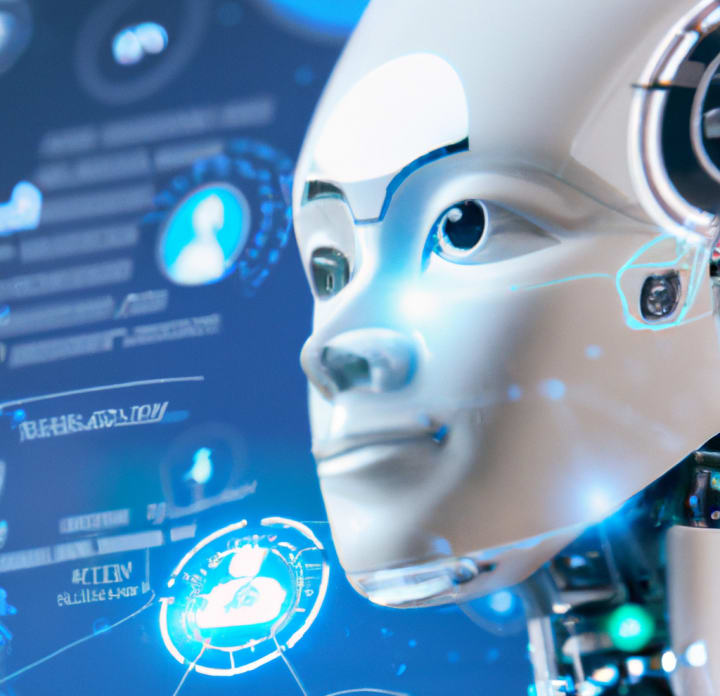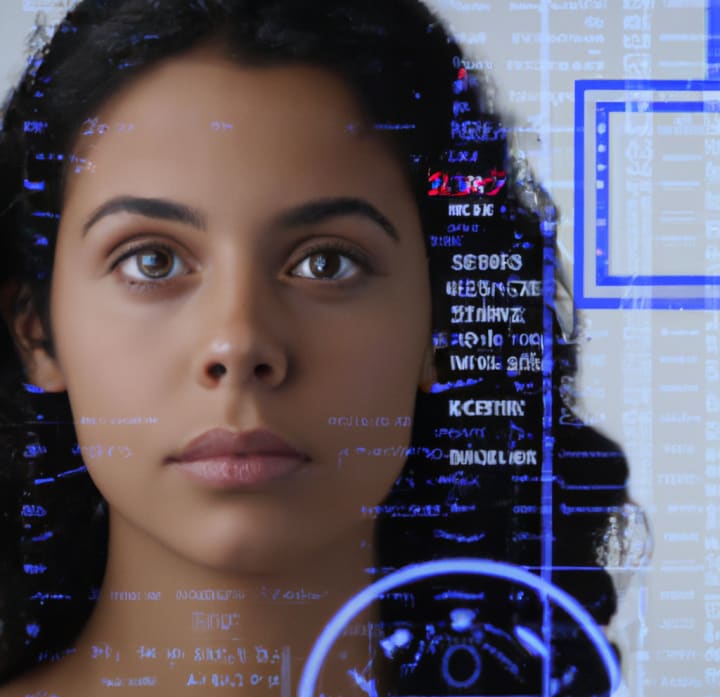
1) Introduction:
Artificial Intelligence, or AI, is a rapidly growing field that involves the development of computer systems that can perform tasks that typically require human intelligence, such as visual perception, speech recognition, decision-making, and language translation. Today, AI is being used in a wide range of industries, from healthcare and finance to transportation and retail, and is expected to play an increasingly important role in shaping the future of many aspects of our daily lives. From virtual assistants in our homes and smartphones to self-driving cars on the roads, AI is already beginning to change the way we live, work, and interact with the world around us. As the technology continues to advance, the potential applications of AI are vast and far-reaching, and it is likely to have a profound impact on many areas of society in the coming years and decades.
2) Current state of AI:
The current state of AI is rapidly evolving, with advancements in areas such as machine learning, deep learning, and natural language processing driving the development of increasingly sophisticated AI systems. In healthcare, AI is being used to analyze medical images, assist in diagnostics, and even help with the development of new drugs. In finance, AI is being used for fraud detection, risk assessment, and automated trading. In transportation, AI-powered self-driving cars are being developed and tested, and drones are being used for package delivery and other tasks. Additionally, AI is also being used in customer service, e-commerce, and other industries to improve efficiency and provide personalized experiences.
One example of AI application in healthcare is the use of AI-powered diagnostic tools, which can analyze medical images such as X-rays and CT scans to assist radiologists in detecting diseases such as cancer. Another example is the use of AI in drug development, where machine learning algorithms are being trained on large data sets to help identify potential drug targets and accelerate the drug discovery process.
In finance, AI is being used for credit risk analysis, which enable financial institutions to analyze large amounts of data to predict which customers are most likely to default on their loans. AI is also being used for fraud detection, which enable banks and other financial institutions to detect unusual patterns of activity in their customers' accounts.
In transportation, self-driving cars and trucks are being developed and tested, which have the potential to reduce accidents and improve traffic flow. Drones are being used for package delivery and other tasks, which can reduce costs and improve efficiency.
Overall, the current state of AI is already having a significant impact on many industries, and this impact is expected to continue to grow as the technology advances.

3) Advancements in machine learning and deep learning:
Advancements in machine learning and deep learning, two key subfields of AI, are driving the continued development of AI. Machine learning is a method of teaching computers to learn from data, without being explicitly programmed, by identifying patterns and making decisions based on them. Deep learning, a subset of machine learning, involves the use of neural networks, which are a type of mathematical model that is designed to mimic the structure and function of the human brain.
One of the key advancements in machine learning is the use of neural networks, which are a type of mathematical model that can be trained to perform a wide range of tasks, such as image recognition, speech recognition, and natural language processing. Neural networks are composed of layers of interconnected nodes, or "neurons," that process input data and pass it through to the next layer, where the process is repeated. As the data flows through the network, the neurons adjust their internal parameters, or "weights," to optimize the network's performance on the task at hand.
Another important area of advancement is natural language processing (NLP), which focuses on enabling machines to understand and generate human language. Advancements in NLP have led to the development of sophisticated language models such as GPT-3, which can generate human-like text, translate languages, and answer questions with a high degree of accuracy.
Overall, the advancements in machine learning and deep learning, such as neural networks and natural language processing, are driving the continued development of AI by making it possible for computers to perform tasks that were previously considered the exclusive domain of humans, such as understanding and generating human language, recognizing objects and speech, and making complex decisions.
4) Impact on industries:
AI is having a significant impact on many industries and is being used to improve efficiency, accuracy, and decision-making in a wide range of areas.
In healthcare, AI is being used to analyze medical images, assist in diagnostics, and even help with the development of new drugs. This can lead to faster, more accurate diagnoses and more personalized treatment plans for patients. AI is also being used to analyze large amounts of patient data to identify trends and predict potential health issues, which can help healthcare professionals to take a proactive approach to care.
In finance, AI is being used to analyze large amounts of financial data to identify patterns and make predictions, which can help financial institutions to detect fraud and assess risk more accurately. AI is also being used to automate many routine financial tasks, such as compliance checking and account reconciliation, which can save time and reduce errors.
In transportation, AI-powered self-driving cars and trucks have the potential to reduce accidents and improve traffic flow, while drones are being used for package delivery and other tasks which can reduce costs and improve efficiency.
In retail, AI is being used to analyze customer data and predict buying patterns, which can help retailers to stock the right products at the right time and improve the customer experience. AI-powered chatbots and virtual assistants are also being used to provide personalized customer service and improve customer engagement.
In manufacturing, AI is being used for predictive maintenance, which can detect potential equipment failures before they occur, and optimize production processes, which can increase efficiency and reduce costs.
AI is also being used in customer service, e-commerce, and other industries to improve efficiency and provide personalized experiences.
Overall, AI is having a significant impact on many industries and is being used to improve efficiency, accuracy, and decision-making in a wide range of areas. The technology is expected to continue to change the way we live, work, and interact with the world around us in the future.
5) Impact on daily life:
AI is expected to have a significant impact on daily life in the future, shaping and improving many aspects of our daily routines. One area where AI is already having an impact is through smart home devices, such as Amazon's Alexa and Google Home, which use natural language processing to understand and respond to voice commands. These devices can be used to control lights, thermostats, and other household appliances, as well as play music, set reminders, and even order groceries.
Another area where AI is expected to have an impact is through virtual assistants, which are being integrated into smartphones and other devices to help users manage their calendars, send messages, and perform other tasks. These virtual assistants use natural language processing to understand and respond to voice commands, and are becoming increasingly sophisticated in their abilities.
In e-commerce, AI is being used to personalize the shopping experience for customers by analyzing data such as browsing history, purchase history, and search queries to recommend products and make personalized recommendations. This technology can also be used to detect and prevent fraud, by analyzing data such as IP addresses and purchase history to identify suspicious activity.
AI is also expected to have an impact on education and entertainment, AI-powered tutors, and virtual reality experiences are becoming more common, which can help to improve the effectiveness of education and make learning more engaging.
AI-powered home appliances and robots are also expected to change the way we do household chores, such as cleaning, cooking, and laundry. These devices can be controlled by voice or through a mobile app and can learn from the user's preferences and habits to make the chores more efficient.
Overall, AI is expected to shape and impact daily life in the future, in many areas such as smart home devices, virtual assistants, personalized shopping experiences, and more. As the technology continues to advance, it will likely change the way we live, work, and interact with the world around us in new and exciting ways.

6) Future of AI:
The future of AI is highly debated, with some experts predicting that it will bring significant advancements and benefits to society, while others warn of potential negative consequences.
One of the most promising areas of AI development is its potential to help solve some of the world's biggest problems, such as climate change, poverty, and disease. AI-powered systems could be used to analyze large amounts of data to identify patterns and make predictions, which could help to improve the efficiency and effectiveness of research and development in these areas.
Another area where AI is expected to have a significant impact is in the field of robotics and automation, which is likely to lead to increased efficiency and productivity in many industries, such as manufacturing and transportation. This could lead to cost savings, improved quality, and increased access to goods and services.
However, there are also concerns about the potential negative consequences of AI. One of the biggest concerns is the potential loss of jobs due to automation, which could lead to widespread economic displacement. Additionally, there are concerns about the potential for AI to be used for malicious purposes, such as cyber attacks or the development of autonomous weapons.
There is also a concern about the potential for AI to perpetuate bias, especially if it is trained on biased data. It is important that AI systems are designed and developed in a way that promotes fairness, transparency, and accountability, to ensure that they do not perpetuate existing biases.
Finally, there is a concern about the potential for AI to become so powerful that it could potentially surpass human intelligence, which could lead to a wide range of ethical and societal implications.
Overall, the future of AI is highly debated, and it is important that society takes a proactive approach to understanding and managing the potential consequences of this powerful technology. It is also important that as we continue to develop and advance AI, we also consider the ethical and societal implications, and take steps to ensure that the technology is developed and used in a way that benefits society as a whole.

7) Conclusion:
In conclusion, Artificial Intelligence (AI) is a rapidly growing field that is already having a significant impact on many industries and aspects of daily life. Advancements in areas such as machine learning, deep learning, and natural language processing are driving the development of increasingly sophisticated AI systems, which are being used to improve efficiency, accuracy and decision making in a wide range of areas, from healthcare, finance and transportation to education and entertainment.
The future of AI is exciting and holds a lot of potential for improving many aspects of society and humanity. However, it also raises important ethical and societal questions that need to be addressed to ensure the safe and responsible use of this powerful technology. The continued development and advancement of AI is expected to have a significant impact on many industries and aspects of daily life in the future, shaping and improving many aspects of our daily routines and making tasks more efficient. It is crucial that as a society we consider the potential implications of this technology and work towards creating a future where the benefits of AI can be fully realized while minimizing any negative consequences.
ancementhi
ance
learning and deep learning:





Comments
There are no comments for this story
Be the first to respond and start the conversation.